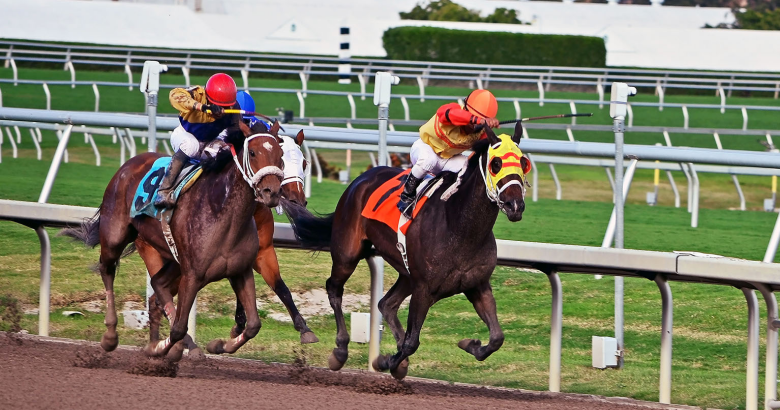The Gambling Taxation Dilemma: Taxable Winnings and Nondeductible Losses
A Day at the Races, hosted by the Associated Builders and Contractors of New Jersey, provided an opportunity for contractors to network with one another as well as with other professionals. The event featured live horse racing as its marquee attraction and for some, an opportunity to place a wager. Depending on the outcome of the horserace, there may be a gambling taxation dilemma with some attendees receiving taxable winnings and others, nondeductible losses.
While discussions on gambling taxation have risen in popularity with recent activity surges in daily fantasy sports, the specifics pertaining to horse racing present some interesting wrinkles.
How Gambling Taxation Works
Before delving deeper into the specifics of horse racing, however, a brief primer on how gambling taxation works. First, winnings are taxable as “other income” on a personal income tax return, but losses are only deductible up to the amount of winnings.

EXAMPLE:
If Joe Taxpayer wins $5,000 but places losing bets totaling $8,000, he can offset the winnings, but the excess $3,000 in losses is not reported anywhere, nor is it carried over to the following year. The amount included in gambling losses is also not merely the wager amount, but inclusive of travel to and from the tournament venue. For this primary reason it is vital to keep detailed records of gambling activities.
Should You Itemize to Use Gambling Losses to Offset Winnings?
There is also a caveat to this general rule in that the ability to use gambling losses to offset winnings is only afforded to those who itemize deductions. If Joe Taxpayer takes the standard deduction, he has to report the winnings as other income but does not get to use the losses. Despite this, the standard deduction would effectively serve as the losses allowed to offset the gambling winnings, plus an additional amount. In most cases, a taxpayer will be no worse for the wear despite this technicality.
Use Form W-2G to Report Gambling Winnings
The IRS requires Form W-2G to be issued to report winning horse racing bets if the total won exceeds $600 and the win pays at least 300 times the wager amount. The IRS requires automatic tax withholding if the same 300X payout is met and the total winnings exceed $5,000.
Note that there are different rules and thresholds for different activities – the thresholds above do not apply to poker tournaments, slot machines, keno or bingo games.
Aggregate Winnings
However, effective September 2017, the IRS adopted a new rule in which all wagers represented on a single ticket can be aggregated and treated as a single bet for withholding and reporting purposes. With the aggregation allowed for these parimutuel bets, while one specific bet may pay out at 300 times the wager, the aggregation of other wagers in the same pool can render the payout below that threshold. This allows bettors to retain more of their winnings at the time and reduces the administrative burden the betting houses experience with issuing forms. This was lobbied for extensively as many who partake in the activity would have sufficient losses to offset winnings by the end of the year, but were required to have tax withheld at the source.
Schedule C Required for Professional Gamblers
For those who consider betting on horse races as more than a hobby and make their living as professional gamblers, the activity is instead reported on Schedule C and treated as a self-employed enterprise. Filing in this manner allows the taxpayer to deduct other operating costs that are ordinary and necessary to running the business. Example of such costs are internet and utilities if wagers are placed online, meals and travel costs to attend tournaments, and periodicals or website subscriptions that increase your knowledge base of the business. Filing as a self-employed individual via Schedule C also brings with it the self-employment tax that is applied to net income on top of the ordinary income tax. Therefore, a taxpayer may get to deduct more expenses against gambling winnings but could incur a higher overall tax rate.
Need Assistance with Gambling Taxation?
The rules can become quite complex and there is no one size fits all solution. Our team at Wouch Maloney is here to help you navigate the growing world of gambling taxation to ensure the proper records are kept, and to evaluate different strategies specific to your situation.
Questions
As always, should you have questions about gambling taxation or any other topics related to your personal or business situation, please contact us at any time.
DISCLAIMER: The WM Daily Update, WM Wednesday Wisdom, Newsletters, COVID-19 Business Resources, COVID-19 Client News Alerts and other related communications are intended to provide general information on legislative COVID-19 relief measures as of the date of this communication and may reference information from reputable sources. Although our firm has made every reasonable effort to ensure that the information provided is accurate, we make no warranties, expressed or implied, on the information provided. As legislative efforts are still ongoing, we expect that there may be additional guidance and clarification from regulators that may modify some of the provisions in this communication. Some of those modifications may be significant. As such, be aware that this is not a comprehensive analysis of the subject matter covered and is not intended to provide specific recommendations to you or your business with respect to the matters addressed.
A Day at the Races was an event held on August 22, 2022, for members and guests of the Associated Builders and Contractors of New Jersey.


